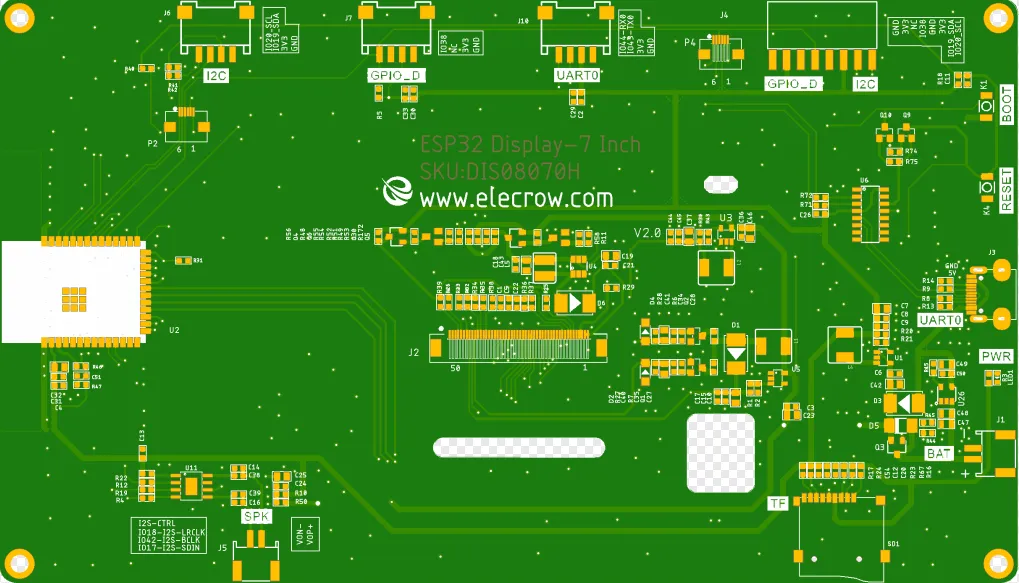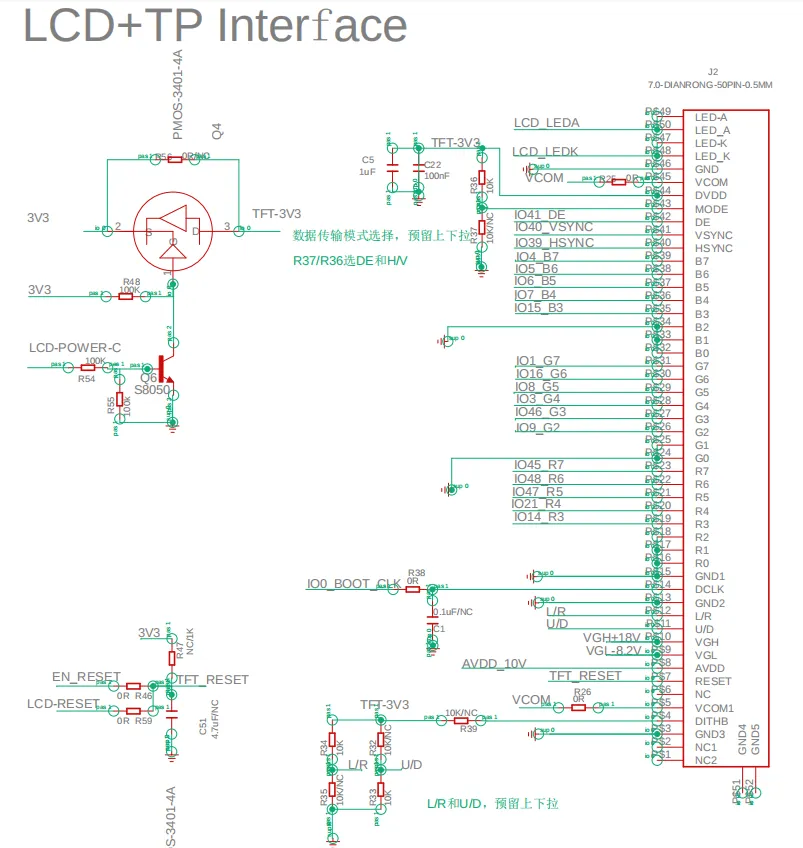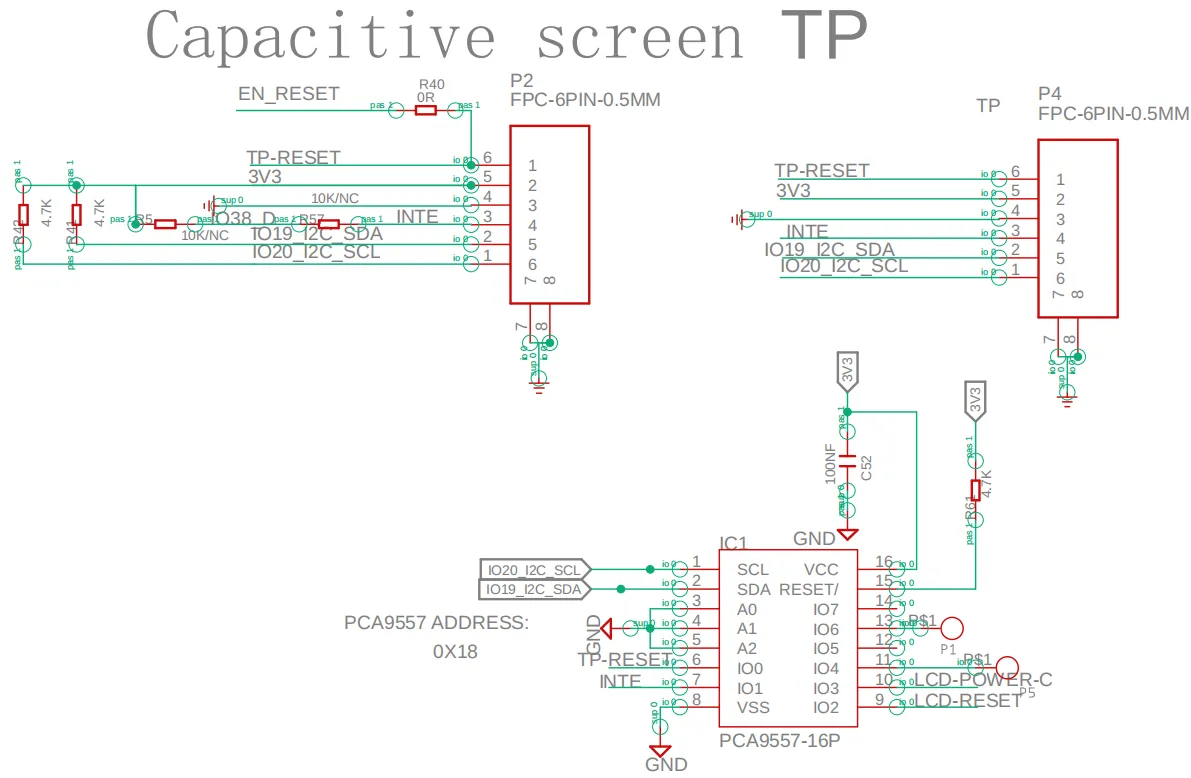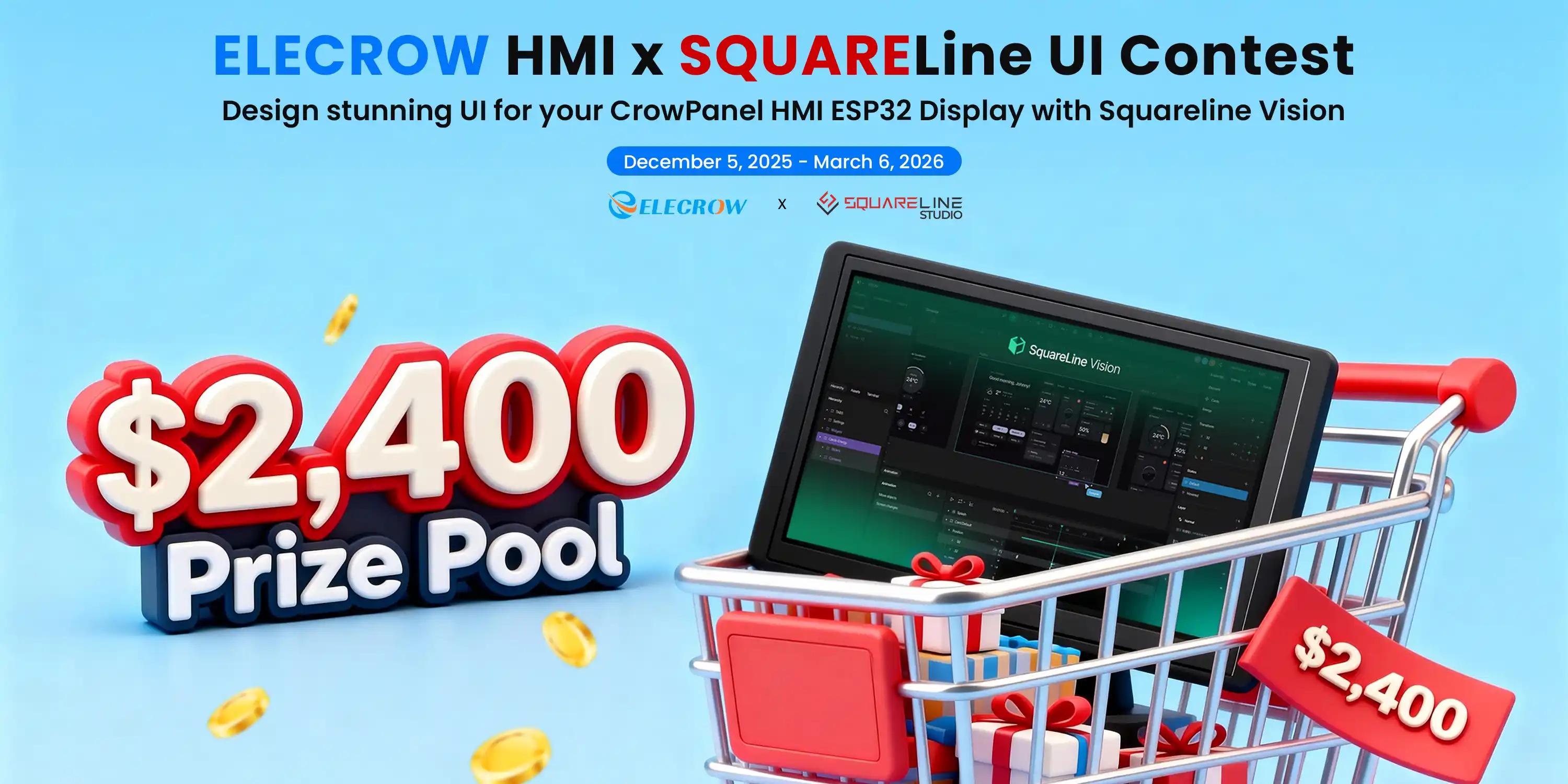CrowPanel ESP32 HMI 7.0-inch Display¶
Requirements for the relevant version of the routine
Board Version
esp32 by Espressif System 2.0.14/2.0.15
Lib Related Versions
Ivgl: 8.3.3
TFT_eSPI: 2.5.0
LovyanGFX: 1.1.8
The libs are provided directly by our wiki, just use the libs provided by the wiki.
This example is suitable for generating UI using Squareline version 1.5.1 or earlier.
Description¶
CrowPanel ESP32 Display 7.0-inch module is a powerful HMI touch screen with 800*480 resolution LCD display. It uses the ESP32-S3-WROOM-1-N4R8 module as the main control processor, with a dual-core 32-bit LX6 microprocessor, integrated WiFi and Bluetooth wireless functions, a main frequency of up to 240MHz, providing powerful performance and versatile applications, suitable for IoT application devices and other scenes.
The module includes a 7.0-inch LCD display and a driver board. The display screen uses a capacitive touch technology and the board has reserved a TF card slot, multiple peripheral interfaces, USB interface, speaker interface, battery interface, etc., providing more expansion possibilities. It supports development environments such as Arduino IDE, Espressif IDF, Lua RTOS, and Micro Python, and is compatible with the LVGL graphics library, supports openHASP. Additionally, it provides 16 learning tutorials and a wealth of open-source learning materials. This enables developers to not only customize their own UI interfaces but also to create interesting projects quickly and easily, greatly shortening the development cycle.
The CrowPanel ESP32 Display 7.0-inch module is suitable for a wide range of scenes such as automotive HMI, medical equipment, industrial control, power, civil electronics, automation, GPS, new energy, and IoT application devices. Its various interfaces and expansion functions make it able to meet the needs of different fields, providing users with a more comprehensive solution.
Module: DIS08070H
Updated Record¶
Please click on the "UPDATED RECORD" below to check the updated details in text.
Please watch below to check the updated explanation.
Feature¶
- Integrated ESP32-S3-WROOM-1-N4R8 module,built-in wireless communication 2.4 GHz Wi-Fi (802.11 b/g/n) and Bluetooth 5.0;
- Support development environment Arduino IDE, Espressif IDF, Lua RTOS, Micro python and compatible with LVGL graphics library;
- Built-in LVGL demo interface and Arduino example, plug and play;
- LCD 800*480 7.0 inch TFT-LCD with driver IC EK9716BD3 + EK73002ACGB;
- Rich peripheral interfaces and expansion functions enable it to meet the needs of different fields.
Specification¶
- Model: 7.0 inch ESP32 display
- Main Processor: ESP32-S3-WROOM-1-N4R8
- Resolution: 800*480
- Touch Type: Capacitive Touch Screen
- Display Type: TN Panel
- Screen: TFT-LCD Screen
- Display driver: EK9716BD3 & EK73002ACGB
- External power supply: DC 5V-2A
- Interface: 2 * UART0, 2 * GPIO, 2 * I2C,1*Battery
Pin Out¶
| Pin Name | Description | Connector Type |
|---|---|---|
| SPK | Output audio signal,connected with speakers. The motherboard comes with a power amplifier chip circuit. | PH2.0-2P |
| PWR | Power LED. | |
| RST | Reset button. Push it to reset the system. | |
| BOOT | ||
| GPIO_D | Digital and artificial I/O interface. | HY2.0-4P |
| I2C | Build the communication among micro controller and peripheral devices. | HY2.0-4P |
| TF | Provide off-line save and extra storage space. | |
| UART1 | Build the communication among Logic modules, including serial communication module and print module. | HY2.0-4P |
| BAT | Connect with the lithium battery. (With the battery charging circuit) | PH2.0-2P |
| UART0 | Provide serial communication, supply voltage(transform USB to UART0) and serial information printing. | HY2.0-4P/USB-C |
| 7.0-inch HMI Port | Pin Number |
|---|---|
| GPIO_D | IO38 |
| UART | RX(IO44); TX(IO43) |
| I2C | SDA(IO19); SCL(IO20) |
| SPK(I2S) | I2S-CTRL; I2S-LRCLK(IO18); I2S-BCLK(IO42); I2S-SDIN(IO17) |
| SD Card Slot(SPI) | MOSI(IO11); MISO(IO13); CLK(IO12); CS(IO10) |
| LCD Backlight | IO2 |
Schematic Diagram¶
ESP32-S3 and TFT display wiring pins
Schematic Diagram:
Definition in the main program:
class LGFX : public lgfx::LGFX_Device
{
public:
lgfx::Bus_RGB _bus_instance;
lgfx::Panel_RGB _panel_instance;
LGFX(void)
{
{
auto cfg = _bus_instance.config();
cfg.panel = &_panel_instance;
cfg.pin_d0 = GPIO_NUM_15; // B0
cfg.pin_d1 = GPIO_NUM_7; // B1
cfg.pin_d2 = GPIO_NUM_6; // B2
cfg.pin_d3 = GPIO_NUM_5; // B3
cfg.pin_d4 = GPIO_NUM_4; // B4
cfg.pin_d5 = GPIO_NUM_9; // G0
cfg.pin_d6 = GPIO_NUM_46; // G1
cfg.pin_d7 = GPIO_NUM_3; // G2
cfg.pin_d8 = GPIO_NUM_8; // G3
cfg.pin_d9 = GPIO_NUM_16; // G4
cfg.pin_d10 = GPIO_NUM_1; // G5
cfg.pin_d11 = GPIO_NUM_14; // R0
cfg.pin_d12 = GPIO_NUM_21; // R1
cfg.pin_d13 = GPIO_NUM_47; // R2
cfg.pin_d14 = GPIO_NUM_48; // R3
cfg.pin_d15 = GPIO_NUM_45; // R4
cfg.pin_henable = GPIO_NUM_41;
cfg.pin_vsync = GPIO_NUM_40;
cfg.pin_hsync = GPIO_NUM_39;
cfg.pin_pclk = GPIO_NUM_0;
cfg.freq_write = 15000000;
cfg.hsync_polarity = 0;
cfg.hsync_front_porch = 40;
cfg.hsync_pulse_width = 48;
cfg.hsync_back_porch = 40;
cfg.vsync_polarity = 0;
cfg.vsync_front_porch = 1;
cfg.vsync_pulse_width = 31;
cfg.vsync_back_porch = 13;
cfg.pclk_active_neg = 1;
cfg.de_idle_high = 0;
cfg.pclk_idle_high = 0;
_bus_instance.config(cfg);
}
{
auto cfg = _panel_instance.config();
cfg.memory_width = 800;
cfg.memory_height = 480;
cfg.panel_width = 800;
cfg.panel_height = 480;
cfg.offset_x = 0;
cfg.offset_y = 0;
_panel_instance.config(cfg);
}
_panel_instance.setBus(&_bus_instance);
setPanel(&_panel_instance);
}
};
LGFX lcd;
ESP32-S3 and touch driver wiring
V2.0 Schematic Diagram:
Pin definition in the touch.h:
Tips:
Please refer to this post to check how to connect sensor using I2C pin and also use touch with it.
V3.0 Schematic Diagram:
Platforms Supported¶
| Arduino IDE | SquareLine Studio | PlatformIO |
|---|---|---|
 |  | 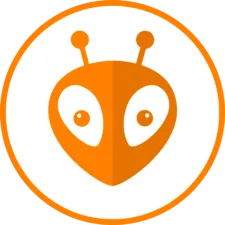 |
 |  |  |
| MicroPython | ESP-IDF | Home Assistant |
|---|---|---|
 | 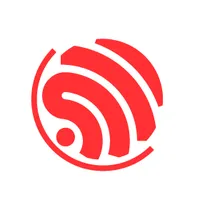 | 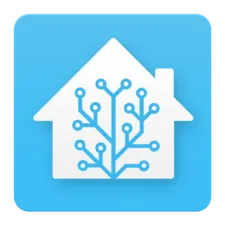 |
 |  |  |
| ESPHome |
|---|
 |
 |
FAQ¶
- Click here to see the frequently asked questions of ESP32 display.
- Please list your question at the forum or contact techsupport@elecrow.com for technology support.
Resources¶
Github Link¶
Schematic & PCB¶
Specifications¶
Certification¶
- CrowPanel CE Certificate
- ESP32-S3-WROOM-1 Wi-Fi Certification
- ESP32-S3-WROOM-1 NCC Certification
- ESP32-S3-WROOM-1 IC Certification.pdf
- ESP32-S3-WROOM-1 MIC Certification.pdf



